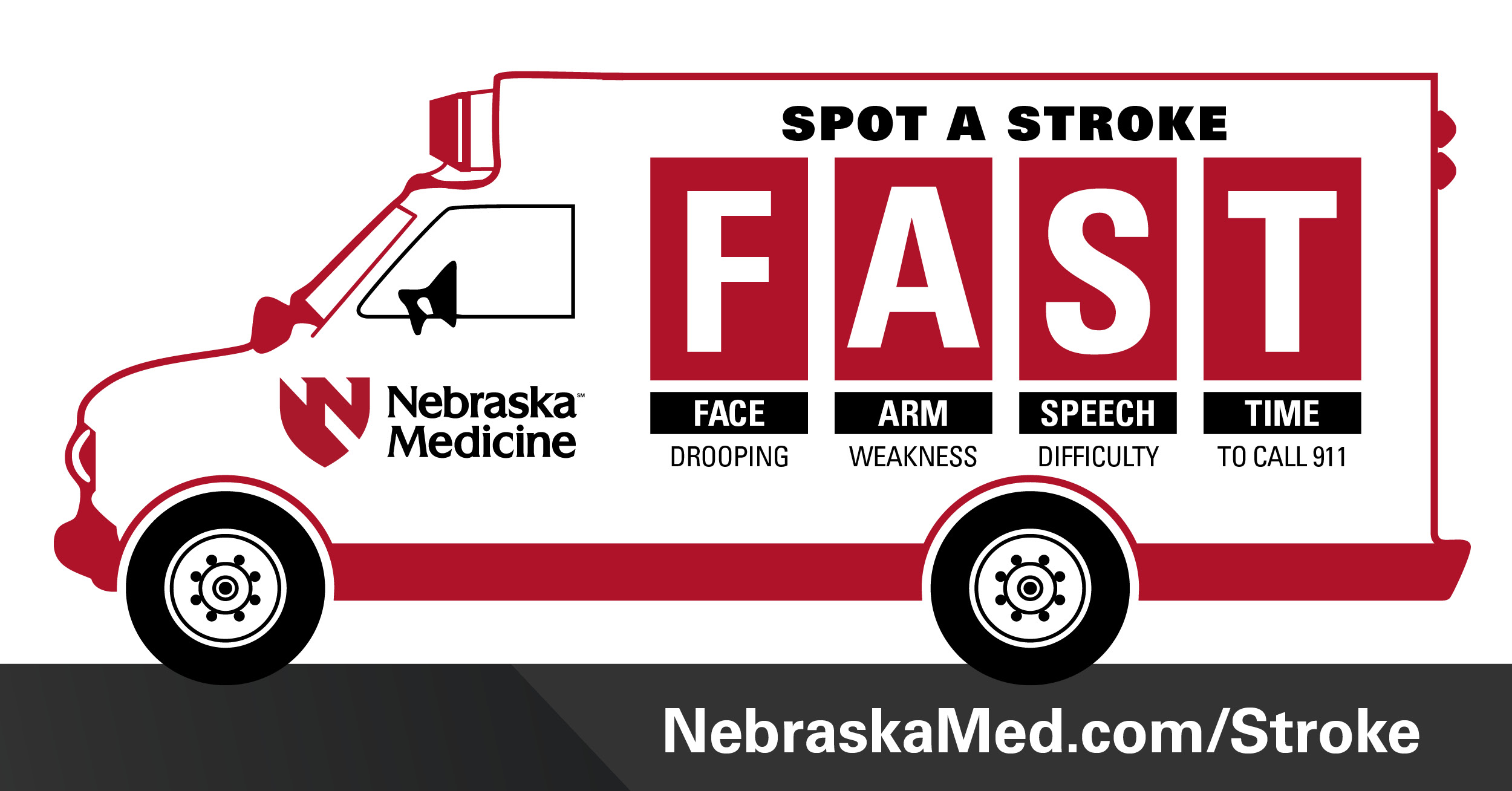
Recognizing the signs of a stroke:
Prompt and appropriate care is crucial in treating and preventing long-term disabilities in someone undergoing a stroke. Studies show those treated as soon as possible with specialized treatments and medications at the hands of a team of doctors and other health experts, experienced the best results.
Call 911 immediately if any of the following symptoms are present:
- Sudden numbness or weakness of the face, arm or leg, especially on one side of the body
- Sudden confusion, trouble speaking or understanding
- Sudden trouble seeing in one or both eyes
- Sudden trouble walking, dizziness, loss of balance or coordination
- Sudden, severe headache with no known cause
All of the above warning signs may not occur with each stroke, as everyone's different. Do not ignore any of the warning signs, even if they go away. Take action immediately. The symptoms of stroke may resemble other medical conditions or problems. Always consult your doctor for an official diagnosis.
Types of strokes:
- Ischemic stroke occurs when arteries are blocked by blood clots or by the gradual build-up of plaque and other fatty deposits. About 87 percent of all strokes are ischemic.
- Hemorrhagic stroke occurs when a blood vessel in the brain breaks, allowing blood to leak into the brain. Hemorrhagic strokes account for 13 percent of all strokes, yet are responsible for more than 30 percent of all stroke deaths.
How to prevent strokes:
Many risk factors for stroke can be changed or managed, in fact, 80 percent of strokes are preventable by modifying your risk factors, while others such as age, your genes, race or gender cannot. It's important to remember strokes can happen to anyone at any time, regardless of race, sex or age.
How you can lower your risk of getting a stroke:
- High blood pressure is one of the most common causes of stroke, even though most people with high blood pressure have no symptoms at all. For people over the age of 18, good blood pressure is considered lower than 120/80. A blood pressure reading consistently higher than 120/80, up to 139/89 is considered pre-hypertension. High blood pressure is a measurement of 140/90. By cutting back on the salt in any diet, the risk of stroke may decrease because of lowered blood pressure.
- Lowering cholesterol levels may reduce your risk of stroke. Often, high cholesterol can be controlled with diet and exercise, but medications may also be prescribed to help lower cholesterol.
- Having diabetes increases the risk of stroke. Diabetes is defined as a fasting blood glucose of 126 mg/dL or higher. Pre-diabetes is defined as a fasting blood glucose of 100-125 mg/dL. Follow a doctor’s advice carefully to get blood sugar levels under control. Nebraska Medicine offers a variety of resources through our Diabetes Center.
- Regular physical activity improves blood pressure, cholesterol and blood sugar levels. The health benefits of exercise can be gained by doing 30 minutes of moderate-intensity physical activity daily. Before starting a vigorous exercise program, check with a doctor.
- Quit smoking cigarettes, which doubles the risk for stroke. Smoking reduces oxygen in the blood and makes clots more likely to form. It also causes temporary increases in blood pressure. For persons who stop smoking today, the risk for stroke will immediately begin to drop. Within five years of quitting, individual stroke risk may be the same as that of someone who has never smoked.
- An irregular heart rhythm such as atrial fibrillation also raises the risk for stroke. Atrial fibrillation occurs when there is an abnormal quivering of the heart’s upper chambers which can cause blood to pool and form clots causing a stroke. To lower the risk of stroke, blood thinners may be prescribed by a doctor to help reduce the blood’s ability to clot.
- Minimize the consumption of alcohol. More than two drinks per day raises blood pressure and binge drinking increases risk of stroke.